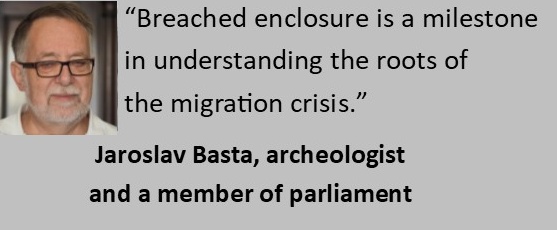In 2015, Europe was hit by a strong wave of migration, which has been ebbing and flowing ever since. This onslaught has revived debates about the state and prospects of the welfare state. While the roots of the welfare state go back further in some countries historically, its greatest expansion came after the Second World War. It was an expression of the desire for social reconciliation in an impoverished Europe that had been through the Great Depression and then the shock of the Second World War.
The high rate of economic growth, the favourable demographic composition of the population and the willingness of companies to redistribute part of their profits within the national economy made it possible to pursue policies that elevated an increasing proportion of the population into the middle classes. The advent of economic globalization, along with an aging population and other factors, changed the deal of the cards fundamentally sometime since the second half of the 1970s.
It was an expression of the desire for social reconciliation in an impoverished Europe that had been through the Great Depression and then the shock of the Second World War.
Perhaps the most succinct (if necessarily schematic in places) description of the further development of the maintenance of social reconciliation is provided by the German sociologist Wolfgang Streeck in his book Gekaufte Zeit (2012). He describes three ways in which this reconciliation has been prolonged despite the growing difficulties of the welfare state. First, paradoxically, inflation has served this purpose. It made it possible to visually enlarge the pie that was divided between labour and capital. It takes time for people to realise that even with a higher salary and an impressively increased retirement pension they can buy less.
The further prolongation of the illusion of prosperity and social reconciliation has been made possible by the rapid indebtedness of states since sometime in the 1980s. Like inflation, sovereign debt gives governments the ability to pacify social tensions with money that is not backed by economic performance.
The flaw in this strategy is that interest on debt is absorbing an ever larger share of GDP, and creditors are beginning to doubt that states will be able to repay their debts. A third way of buying time is emerging. It takes the form of household debt, which has been rising sharply in many countries since the 1990s.
In the course of these manoeuvres to try to fake a semblance of general prosperity, the shape of the social structure and the relationship between different parts of society is changing. In a globalised economy, the upper layers are becoming detached from the nation state, the lower layers are growing in number and their chances in the global economy are thinning. The middle classes are becoming the last great sponsor of the welfare state, even though they themselves cannot – unlike in the thirty years after the war – expect much support from it. As a result, there is growing rancour between the disenfranchised middle classes and those at the very bottom. The upper layers do not interfere; they are quite comfortable with this conflict.
As a result, there is growing rancour between the disenfranchised middle classes and those at the very bottom.
Into this constellation comes a mass wave of migrants. Politicians cry “We can do it!” because they live under the assumption that the welfare state is still in as good shape as it was when they dreamed of entering politics themselves one day. They frankly wonder why their enthusiasm is not always reciprocated. The problem is not that people have become callous. The problem is that migrants are streaming en masse into debt-ridden countries with debt-ridden households, where inflation is once again running rampant. All three ways of hiding problems and camouflaging social reconciliation for a long time are merging and they are beginning to demand to pay interest on interest. The lower classes are worried that someone else will now be helped in preference; the middle classes, in addition to their growing economic problems, face accusations of a lack of civic awareness. The upper classes and their politicians are closing themselves into their safety shells, from where their calls for more openness are coming. Those on the right who have accused the welfare state of being too wasteful, and those on the left who have accused it of being too bureaucratic, are calling on it with all the vigour they can muster to do more.
Jan Keller is a Czech professor of sociology.


